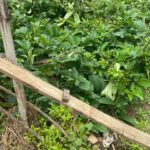
Agricultural extension is a non formal educational system which assists farmers in improving farming techniques, increasing production efficiency and income, and improving their standards of living.
Agricultural extension is a process which assist farmers through non formal educational procedures in improving farming methods and techniques.
Objectives of Agricultural Extension
- To help people living in rural areas to recognize and take interest in their problems.
- To convince people to make themselves available to be taught how to raise their standards of living by their own efforts, using their own resources and initiatives, and encourage local leadership.
- To educate farmers to abandon unproductive traditional ways of farming for improved and scientific farming techniques.
- To help improve the health of rural dwellers do better nutrition, using their own farm produce.
- To help accelerate rural development collection and collation of basic information relating to rural programs.
- To facilitate the identification of proper marketing channels.
- To help farmers to access and supervise the use of agricultural loans.
- To link farmers with research institutes.
Roles or Functions of Agricultural Extension
Agricultural extension is very important for the development of agriculture in West Africa. Government should encourage agricultural extension services for the following reasons:
1. Increase in agricultural production
It encourages farmers to increase their production of food crops, cash crops and livestock.
2. Teaches improved farming practices
It teaches farmers improved practices in the cultivation, rearing and processing of crops and livestock.
3. Collection and collation of basic information
It helps to collect and collated basic information relating to rural programs.
4. Acting as intermediary between farmers and research institutes
It acts as an intermediary between Farmers and research institutes.
5. Supervision of agricultural loans
It helps to supervise the beneficiaries of agricultural loans.
6. Changing people’s attitude towards their problems
It helps to change people’s attitude towards their problems.
7. Rasing standard of living
It helps to raise the standard of living of the farmers.
8. Identification of proper marketing channels
It helps to identify proper marketing channels for the farmers to sell their products.
9. Acquisition of skills
It helps the farmers to acquire scales and specialization in the production of crops and livestock.
10. Teaching land management techniques
It introduces and teaches farmers land management techniques which increase land fertility and productivity.
11. Teaching improved practices in the product processing
It enables farmers to be taught improved practices in processing of livestock and crops.
12. Implementation of auxiliary programs
It helps in planning organizing and implementing auxiliary programs example Young Farmers club.
13. Assistance to foreign experts
It’s enables extension officers to give necessary assistance to foreign experts visiting states on the invitation of government in order to carry out feasibility studies in various fields of agriculture.
14. Supervision of agricultural development program
It assists in supervising and evaluating agricultural development programmes.
problems facing agricultural extension in Nigeria
Problems facing or mutating against agricultural extension in West Africa includes:
Inadequate farm input
Farm or agricultural inputs are inadequate and often gets to the users (farmers) very late.
Non involvement of extension officers
The subject matter specialist (agricultural extension officers) are often not properly involved.
Inadequate transport facilities
There are inadequate transport facilities for extension staff.
Poor supervision of farmers
The supervision of the Farmers by the extension agent is weak or poor.
Delay in information
Information to farmers is usually delayed and distorted due to poor training of extension agent.
Ignorance of the tradition and customs of local communities
Many agents are ignorant of the traditions and customs of their target communities and often run Foul of their system, making it difficult for them to receive audience.
Inadequate extension workers
Very few extension workers are available to work with too many farmers,that is, there is low extension farmer ratio.
Poor community facilities
There are poor facilities of extension communication which limit the scope and efficiency of coverage.
Illiteracy of the Farmers
Target farmers are largely illiterate and find it difficult to follow instructions.
Inadequate monitoring of extension agents performance
There is poor or inadequate monitoring of the activities or performances of the extension agents because of difficulties therefore mediocrity is often perpetrated.
Inadequate extension tools
Extension tools and facilities are grossly inadequate for the extension work to succeed.
Conservatism of farmers
The conservatism of farmers makes changes difficult.
Undefined roles for agents
There is no proper defined roles for extension workers. Hence they are not effective in their work.
Language Barrier
As a result of the low level of education of most farmers there is lack of understanding between the extension workers and the Farmers.
Non-involvement of farmers
During the planning of extension services farmers are not involved in the entire programme. This may lead to the failure of such programme.
Corruption of extension personnels
Some extension personnels are corrupt as the divert funds meant for extension services to their personal gains.
target group of extension agents
- Commercial farmers or subsistence farmers
- Farmers cooperative societies
- Nomads; youth organization example Young Farmers club.
- Non-governmental organizations.
- Fisherman or fish farmers.
- Community development associations.
- Beebkeepers.
method of disseminating new ideas and techniques to farmers
There are three main extension teaching methods that is method used in disseminating new ideas and techniques to farmers are grouped into three classes
- Individual method
- Group method
- Mass method.
Individual method
The individual method includes farm and home visit end at direct contact between Farmers and the extension agent. The purpose is to give advice or assistance on a wide range of farm and home problems. In other to succeed, it may require the assistant of volunteer leaders or administrators to arrange meeting things so as to develop public relations with organizations and important individuals. Examples of individual method of disseminating idea and innovations are:
- Farm visits.
- Office visits.
- Personal letters.
- Calls.
- Text messages through GSM.
- E-mails.
- Home visits.
- Telephone.
advantages of individual method
- The extension work against first hand knowledge of actual farm situation.
- Personal visit develops goodwill, confidence and mutual trust between farmer and extension agent.
- It gives opportunity to farmers to present peculiar problems and for the extension agents to answer specific questions and grant specific request.
- It helps extension workers to single out local leaders
Disadvantages of individual method
- It is a time consuming method
- It is also a very tedious method
- Extension agents cannot reach many farmers
- It may be very expensive example telephone calls.
- There is the tendency to visit some farmers more than others just arousing resentment in the farming community.
Group method
The group method involves the working together with group of farmers under the supervision of the extension workers. Example of group method are:
- Meetings
- Field trips
- Seminars
- Demonstrations
- Group discussion
- Workshops
- Excursions or tours
- Debate
- Lectures
- Conferences
- Agricultural shows
- Symposia
Advantages of using demonstration as an extension teaching method
- It’s enables participants to debate issues and make sound judgment about lessons being taught.
- It appears to logic and reasoning.
- It provides a problem solving practical experience that is it makes learning easier.
- It allows the teaching of a larger number of farmers at the same time.
- It helps to move farmers from the awareness and interest stages of learning to those of trial and adoption that is it captures the attention of farmers.
- It is more economical in terms of time, energy and other resources compared to other methods.
- Communication is made much easier for the extension officer and agents.
Field trip as agricultural extension teaching method
- It is a planned visit by a group of farmers to place of agricultural importance such as a successful farmer’s farm demonstration farm a research institute or agricultural institution.
- Field trips are undertaken to observe in a real situation, recommend agricultural practices and input not locally available and to obtain information directly from successful farmers.
- During the trip the attention of farmers is strong to interesting things and important points.
- Back in their community the group should meet and discuss what they saw and learnt.
Agriultural shows as an agricultural extension teaching method
- It is a day set aside for showcasing successful farmer’s farms and displaying improved agricultural impulse implementing and machinery to farmers.
- They are held in villages, towns and cities and have a Nationwide character.
- During such shows, selected farmers, input suppliers and other stakeholders in agriculture display their produce and products for recognition and award.
- Very often, processed food are also exhibited.
- It is characterized by festive moods, speeches, addresses and awards.
Advantages of Group Method
- It enables extension workers to reach a large number of farmers at a time/saves time.
- Farmers learn faster and better.
- It is cost-effective.
- It influences reluctant farmers to adopt innovations.
- It directs attention on group problems and possible solutions.
- Farmers learn from one another.
Disadvantages of Group Method
- Some members of the group may easily discourage others.
- Extension agents may not always find all members of the group to be present all the time.
- Extension officers may not be enough to carry out their jobs in many groups.


